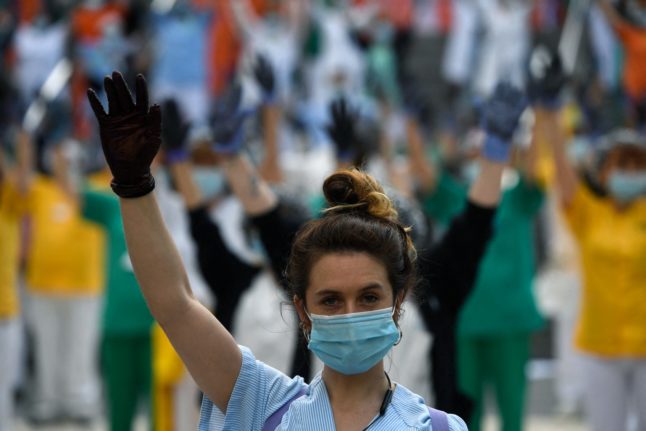The decree was announced after a meeting between the health ministry and representatives of the country’s regions, who control their own health systems.
Initially it appeared that each regional health department would be responsible for deciding whether to bring back mask wearing, but the measure will finally be reimposed across all 17 autonomous communities.
Spain, which was hit hard by the first wave of Covid-19 in 2020, has been considering the move for several days but a final decision was held up by disagreements among its regions.
“Since the pandemic, we have learnt,” said Spanish Health Minister Mónica García after the meeting.
“We have thought hard about the issue of the mask to protect above all health centres and hospitals, to protect patients as much as (healthcare) professionals.”
The wearing of masks is “a measure that is effective, common sense, that is backed by scientific evidence and that is welcomed by the general population”, she added.
García had already on Friday expressed her support for a return to obligatory masks in healthcare facilities in a post on X, formerly Twitter.
The eastern regions of Valencia and Catalonia had also said on Friday that they would require masks for healthcare workers and patients.
For days, doctors in Spain have been raising the alarm about rising cases of the flu, as well as Covid and other respiratory viruses.
Mask mandates were well respected in Spain during the pandemic, where lockdowns were among the strictest in the world.
Masks were required until July 2023 in places likely to welcome at-risk populations, such as hospitals, retirement homes and pharmacies.
The coming mandate will not apply to pharmacies, the ministry said.



 Please whitelist us to continue reading.
Please whitelist us to continue reading.
Member comments